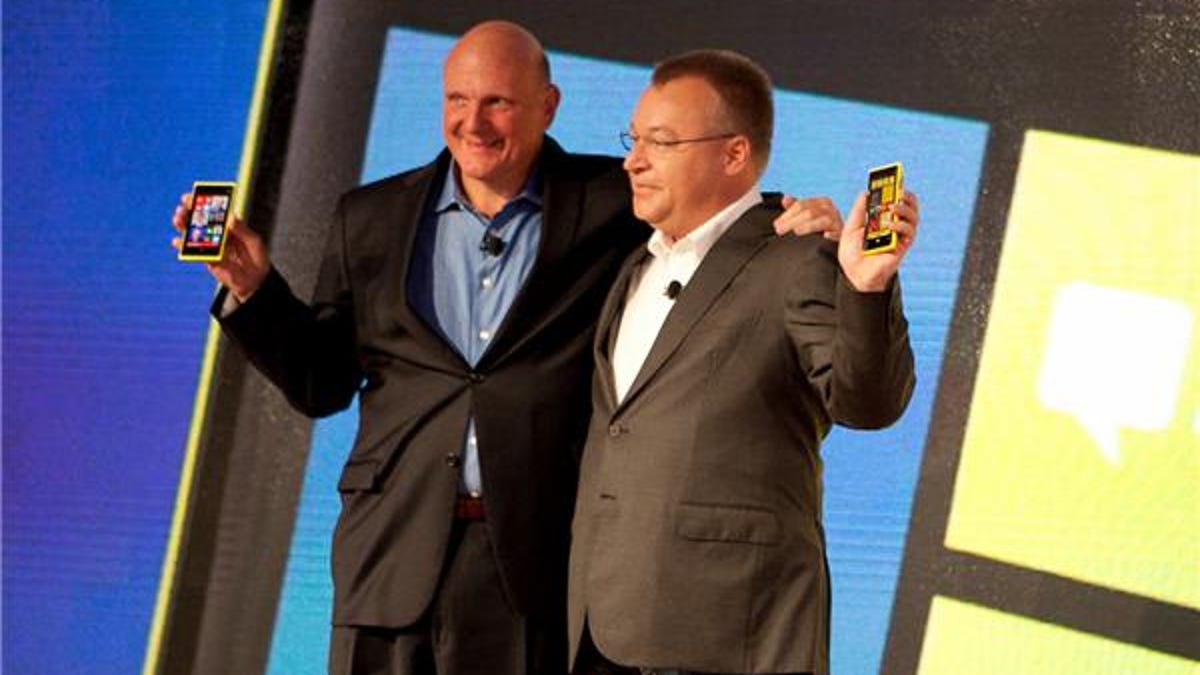Microsoft makes its Apple move, bringing Nokia and Elop into fold
By acquiring Nokia, Microsoft gains more control over the hardware and software, following Apple's example of vertical integration, and Stephen Elop, a leading contender for the CEO spot.

While Steve Ballmer, Microsoft's board of directors, and Bill Gates were deciding it was time for a change of CEO, the company had another blockbuster announcement in the wings.
A little more than a week after Ballmer said he was retiring and that a new CEO would be appointed within 12 months, Microsoft is acquiring Nokia's devices and services business and patents licenses for $7.175 billion. And, Stephen Elop, Nokia CEO, former head of Microsoft's business software division and soon to be executive vice president of Nokia for lame duck CEO Ballmer, becomes a front runner in the CEO sweepstakes.
Nokia has been a close partner of Microsoft since agreeing in February 2011 to focus on the Windows Phone platform. By acquiring Nokia, Microsoft gains more control over its mobile hardware and software, following Apple's example of vertical integration. That means Microsoft will be less palatable to its partner community that develops Windows Phone devices.
Terry Myerson, executive vice president of Microsoft's operating systems, contends that the Nokia acquisition will help build the market for other Windows Phone makers. "As the engineering leader for the Windows Phone efforts, I was there at the birth of Windows Phone, and a key part of our original partnership with Nokia. I know firsthand how critical it was for me and the team to be a valuable partner to Nokia, in addition to building out a great ecosystem of partners, hardware and software alike. Today's announcement doesn't change that - acquiring Nokia's Devices group will help make the market for all Windows Phones, from Microsoft or our OEM partners," he said in a blog post.
Microsoft signaled a major hardware shift last year with the introduction of its Surface tablets, which the company designed and manufactured itself. While Surface device has not been counted as a success story -- the company took a $900 million write-down on Surface RT inventory last quarter -- Microsoft is following up with new Surface models.
The Nokia partnership so far hasn't gotten Windows Phone very far out of the basement in the smartphone arena dominated by Android and Apple iOS devices. However, Nokia has accounted for most of its recent growth. According to IDC's numbers, Windows Phone shipments grew from 4.9 million in the second quarter of 2012 to 8.7 million in the same quarter for 2013. Nokia shipped 7.1 million Windows smartphones in the second quarter of 2013, which was 81 percent of all Windows Phones for that period.
Based on recent smartphone sales data from Kantar Worldpanel ComTech for the three months to July 2013, Windows Phone is seeing some market share gains. "Windows Phone, driven largely by lower priced Nokia smartphones such as the Lumia 520, now represents around one in 10 smartphone sales in Britain, France, Germany and Mexico. For the first time the platform has claimed the number two spot in a major world market, taking 11.6 percent of sales in Mexico," said Dominic Sunnebo, strategic insight director at Kantar Worldpanel ComTech, in a press statement. He added that Windows Phone isn't converting iOS or Android customers, but is making inroads with first time smartphone buyers.
However, in two key markets Windows Phone is a blip, with less than 4 percent of U.S. smartphone sales and 3 percent in China, according to Kantar Worldpanel ComTech.
It could be that buying Nokia is Microsoft's version of Apple buying NeXT and bringing Steve Jobs back. Of course, it was Jobs who figured out how to make a market out of smartphones and tablets, and Microsoft has been flailing in that space over the last several years. Whether Elop ascends to the CEO role or the acquisition of Nokia turns Microsoft into a smartphone, tablet or wearable juggernaut remains to be seen. But the move to bring Nokia and Elop into the fold signals that Microsoft is changing its ways.

